Ruth Ann Nordin's Blog, page 25
January 13, 2021
Writers Focused on Making More Money Can Never Relax
So I find myself reading another book geared toward writers. The portion I just came to had to do with the hamster wheel syndrome. This syndrome is when you aim for a certain money goal, and once you reach it, you realize you’re stuck because no matter what marketing efforts you’re currently doing, you’re not making more money. All you’re doing is holding steady.
Since the goal is money, you’re in a panic because you want to make more. So what do you do? You run after a new shiny marketing tactic, and it works! Suddenly, you’re making more. Good. All things are set to go. So you run and run, and after a while, you reach another place where you’re stagnant. You’re not losing money, but you’re not gaining more, either. So you’re in the hamster wheel again, and you’re scrambling to find yet another marketing tactic that will earn you more money.
This is a cycle, and to sum it up, this is what it looks like:
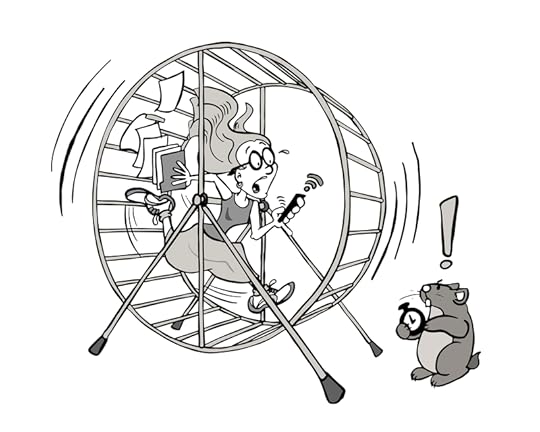 ID 153106770 © Antonio Meza | Dreamstime.com
ID 153106770 © Antonio Meza | Dreamstime.comAfter reading through a couple of pages of the author describing this cycle, I had to put the book down and hop on here to do a blog post. I’ve been through this stupid cycle. This led to a burnout so major that I lost all enjoyment for writing. Only looking back on things can I see this hamster wheel clearly. At the time, I didn’t realize the hamster wheel was the problem. It was never the books themselves that dimmed my enthusiasm for writing; it was the pursuit of more money that wiped that enthusiasm out.
I’m going to level with everyone reading this. The sad truth is that no matter how much money you make, it will NEVER be enough. You will always want more because the end goal is money.
Now I believe the author of this book I’m reading loves writing. This author is fun to read, and this author sounds like someone who is fun to be around in real life. So I’m not speaking of the author personally in this post.
I’m speaking about the pursuit of “more money, more more, more money” that is strong in the writing community. This author just outlined why the hamster wheel is so incredibly crappy. I could feel the frustration and fear this author is harboring. I don’t know if the author realizes how transparent those emotions were on the page, but that’s what this author is facing on a daily basis. Despite the awesome sales and acclaim this author receives, there’s always that underlying pursuit of “more”.
This cycle, left unchecked, will kill anyone’s joy in writing. You can keep going as long as you figure out that new shiny marketing tactic that takes you to the next level. Getting to the next level of more money does give you a boost of excitement that propels you to keep writing. But just how many new shiny marketing tactics can there possibly be out there? How fast can you possibly move to keep up with them?
I just don’t see how this can last for a lifetime. I really can’t. This is a hectic pace. I can see how this can be doable for a few years. Maybe it can even last for a decade. But I don’t see how anyone can keep up with this level of angst to earn more money long term while maintaining your passion for writing. Honestly, I think the faster you’re rushing to get books out to make more money, the sooner you’ll hit burnout.
Writing is a creative process. You can’t just MAKE a story idea come to you. You have to get inspired. Yes, you can buy plots. This is big in writing circles. I had no idea just how big this was until last year when I saw several posts on Facebook from writers who were out of ideas and needed plots. There is a market out there for people who want to create plots for writers and sell them. Writers can’t keep coming up with ideas if they never give their brains time to rest. Rapid release + rushing to make more money = little time to come up with new ideas. So if you’re good at creating plots and don’t want to write them, you might want to look into selling plots. The more detailed you can make these plots, the more you can charge.
Back to the post….
At the end of the day, just how much money do you need in order to be happy? I get wanting to pay your bills and make a living. That makes perfect sense. But do you really need a “six-figure income” in order to be happy? I’m not knocking people who make $100K+ income. That’s awesome. What I’m talking about, though, is happiness. Happiness isn’t something you can put a dollar amount on. It’s the “love” of money that I think is the problem. We love money so much that we’ve made it an idol we worship.
I’m not insensitive. I understand the pull money has. I felt it back in 2014-2017 when I hopped up in the hamster wheel. I get how fun “more and more” is. Money didn’t make me happy, though. If anything, the constant pursuit of it ended up making me miserable. That’s why I say that no matter how much you make, it will never satisfy you. I don’t care if you make millions. That isn’t going to magically make you happy.
If you want to be happy, you need to be content with where things are right now. Sure, have goals. I’m all for goals. But I prefer goals that are grounded in things that I can control. No author has control over how many people buy their books. You can lead them to your books, but it’s out of your hands as to whether they buy them or even read them. When you make your goals revolve around things you can’t control, you’ll end up frustrated if other people don’t fulfill them for you. If your goals are things you can control, you’ll feel a deep sense of satisfaction when you accomplish them. It’s all about what you choose to focus on.
The good news is you can choose whether or not you want to be in the hamster wheel. For me, I’ll never go back there again. I’m making way less money today than I used to, but I am happy and I love writing again. To me, the trade-off is worth it. But if the other path is one you want to pursue, more power to you.
January 10, 2021
What I’m Doing on MeWe and Etsy
I’ve been doing some organization on MeWe and Etsy, and since this stuff is more like “cleaning up my little writer’s house”, I figured I’d lump the information about what I’ve been doing over on these sites into one post.
Author Page on MeWe
I decided to give a MeWe Author Page another try. I originally deleted the one I had because strange men I didn’t know were leaving comments about how interesting the books sounded, even though I knew they weren’t reading them. These are men who are probably looking for a naive woman to give them money. (I’m sure a lot of women have just rolled their eyes because these men are all over social media.) Well, this time, I’m going to stay on top of things. As soon as one of these men pop up, I’m blocking them. I’m hoping that by blocking these men, I can keep the page a pleasant place for people to be. I don’t want anyone associated with me getting bugged or followed by these men, either.
Things you can expect on this page:
I’ll be chiming in with a little tidbit that has to do with one of the books I’m working on. For example, I wrote this while writing Suitable for Marriage the other day: “Erin Larson hasn’t even picked a husband yet, but she and her sister have the details of Erin’s future wedding all planned out. This is right in Chapter One. I think it’s too funny that these sisters are so excited to get married. 
January 7, 2021
My Thoughts On The Rapid Release Strategy
An author friend recommended I read a book on rapid releasing. For anyone who might not be aware of this process, it means that authors put out a new book as quickly as possible. The author of this particular book has experimented with publishing a new book a week for the first pen name, a book every other week for a second pen name, and yet another book every single month for a third pen name. I assume these books aren’t all full-length, though she never specified how long they were. All I know is that the one pen name that she shared have books that are full-length.
She never did address the questions I had while reading the book. Does she use ghostwriters to help accomplish this feat? I wonder how it’s possible to keep up with that kind of momentum for more than a year. It seems that getting out all of those books between three pen names every year would end up giving someone a serious case of burnout. I think this writer said she started back in 2016. Other questions I had about her process that she never addressed were, “When do you take time to edit? When do you take time to discuss covers with your cover artist? When do you balance the marketing aspect with writing? (She said she loves promoting her books more than writing them, so I assume she doesn’t hand this task to an assistant.) Do you answer emails? How do you have time for social media (since she’s on Facebook)? Or, does she have an assistant who does the bulk of the non-writing stuff for her? And if so, how much is the assistant doing?”
In the end, the questions are none of my business. If she doesn’t want to explain how she’s managed to keep up this hectic publishing schedule every year since 2016, that’s really up to her. The goal of the book was to tell authors why rapid release will sell more books and why authors should adopt this method if they want to make a living writing. I only read the book since an author friend wanted to know my thoughts on it.
Well, here are my thoughts on the rapid release strategy.
 ID 177830495 © Photojogtom| Dreamstime.com
ID 177830495 © Photojogtom| Dreamstime.comI think it sucks. I don’t like it.
Just reading about the woman’s hectic process wore me out. I walked away feeling like I needed a long nap.
What’s the point in writing books if you’re going to be working on them so fast that you don’t have any time to enjoy the process? You might as well just hire the work out to ghostwriters. Come up with outlines so you can make sure the story is your idea, but let them write them out. There’s nothing wrong with using ghostwriters. You don’t have to tell other people you use them. And ghostwriters get paid for writing books for you. Some of them are pretty cheap from what an author friend told me. If the only goal that matters to you is money, then why burn yourself out by writing at such a crazy pace?
I’ve chosen not to do the rapid release schedule because I want to write my own books AND I want to enjoy the process of creating the story. The journey of watching the story unfold (with all of its twists and turns) is what makes writing so much fun. When you get that “ah-ha” moment, it gives you a natural high. When you aren’t rushing through the story, you get to spend days enjoying that high. If you’re zooming right through the scenes, the high is going to be suppressed by your tight deadline. All that matters is finishing the book. It doesn’t matter what a character discovered about himself or how a conversation a character has will end up having significance later on in the story (or maybe even a series). In my opinion, writers who rush through books just to finish them are missing out. But, to play devil’s advocate, I’m not the one making $100,000+ a year writing books. So what do I know about the business, right?
All I’m doing is giving one writer’s opinion. I’m done with trying to come up with ways to make more money from writing and publishing books. It’s done nothing but drained me of all the joy in my writing. I almost quit writing because of the hamster wheel. You can make a ton of money at this and still be miserable. Money doesn’t make writing fun. I get that money puts food on the table and pays the bills, but it’s not going to be what makes writing FUN. You have to love the process of writing to have fun. You have to be passionate about what you’re working on to have fun. Your stories have to mean something deep inside of you. If you aren’t invested in what you’re writing, the books won’t have long-lasting meaning to you.
But maybe that’s not your aim. Maybe your aim is only money. In that case, I highly recommend ghostwriters because a rapid release schedule is going to end up draining you dry unless it’s a short-term strategy. Writing isn’t something that always earns you more and more money every year. Income can go down. There are no guarantees in this business. One book can be a good seller and then next can flop. You just don’t know what will happen. And not everyone who runs ads all the time sees a return on their investment. So don’t expect constant ad run to be your magic bullet. I’ve heard too many horror stories from writers who ended up in debt running ads all the time. Yes, the work out well for some, but not everyone benefits from them.
If 2020 has taught me anything, it’s how important it is to enjoy the time you have because you never know what tomorrow will bring. Writing is what keeps me sane. It gives me a foundation to stand on even when the rest of the world is descending into chaos. We live in a time when we’re lucky to have computers and internet because these inventions have made it easy to write and publish books. With self-publishing, you can write any story you want. No publisher is going to step in and stop you from getting your book into the world. That’s a tremendous blessing. In 2021, I’m going to enjoy this blessing to the max. I’m going to dive into the joy of meeting characters in my stories and finding out what fun journey they’re going to take me on. I will not rush any story just to get it out into the world.
If anyone out there feels the same way I do, I’m currently working on a book that is for writers who don’t want to rapid release but might want to find a comfortable publishing schedule that best fits their lifestyle. It’s meant to be motivational and instructional. I believe that finding a comfortable publishing schedule opens the door to being able to relax and enjoy the process of writing. If you would like to write more (and have the spare time to), this can help “up” your publishing schedule. But this only works if you have the time. It won’t do anything if you’re already pressed to your limits. If you’re pressed to your limits, I recommend slowing down. I don’t think we should stress ourselves out to publish more books.
I’ve been writing since I was in high school (early ’90s), but I didn’t get serious about it until 2008 when self-publishing became easy and affordable. In the past 12 years, I’ve experimented with different writing paces, and I’ve settled on a happy medium where I can balance writing and real life without feeling hectic. I wrote down my strategy and put it into a short book. (There’s really not much to it.) I already have the cover for it.
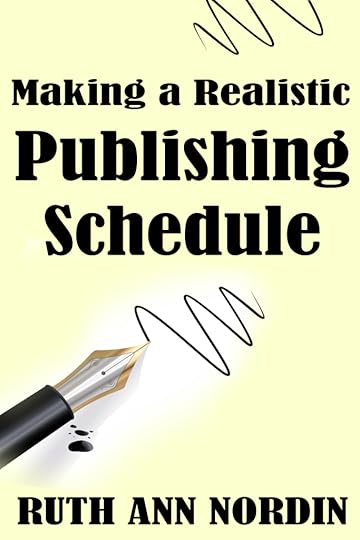
I have the first draft down and am currently working on the second. I’d like to have this out in the summer since my plan is to finish up with the current romances I’m writing first. I’ll make this free when it comes out. This is something I hope will help writers who are having trouble coming up with an annual publishing schedule. Maybe some will find they can get more books out. Or maybe it’ll just help with organizing your time so that there’s not so much “wasted” time that seems to go into a black hole somewhere. I believe a productive mind is a happy mind. Also, it’s nice when you can truly enjoy writing for the sake of writing.
December 31, 2020
Books I’m Planning to Get Out in 2021
I can only guarantee the release months for A Deceptive Wager and Perfectly Matched. I’m going to do my best to guess the order this still will be out.
A Deceptive Wager is due out January 17
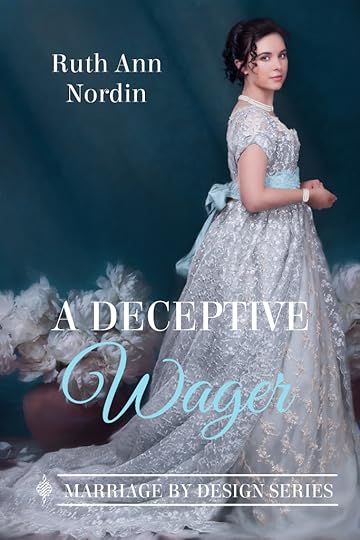 Click here for pre-order links!
Click here for pre-order links!This is the final book in the Marriage by Design Series. It’s a Regency. It’s tone is similar to Breaking the Rules, which is book one in the series.
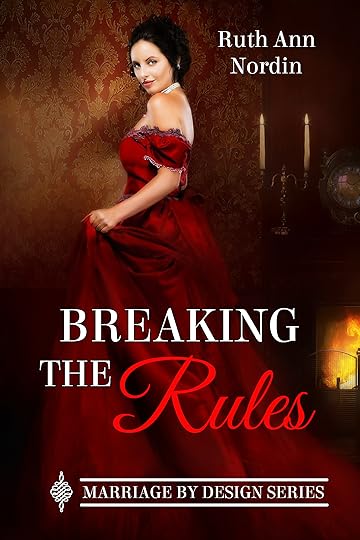


Perfectly Match is due out in March
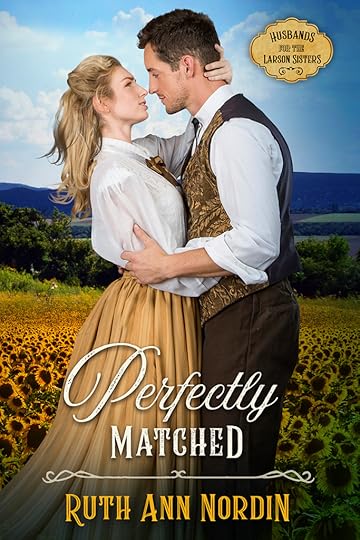
This is Book 2 in the Husbands for the Larson Sisters Series. It’s a historical western romance, and it features Tom and Jessica Larson’s second daughter, Patricia. This is a comedy in the spirit of A Bride for Tom.
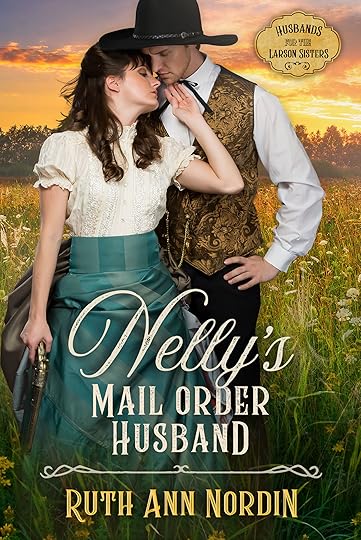
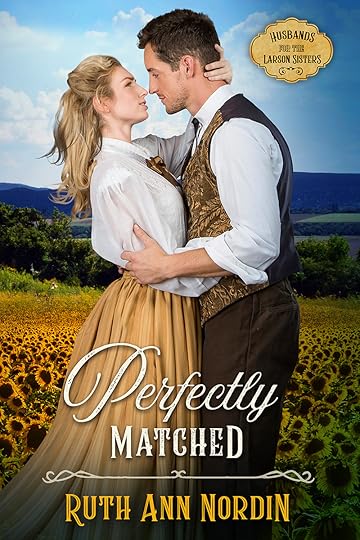
 Book 4 Will Go Here
Book 4 Will Go Here
***
With the books below, I’m not 100% sure of the months they’ll be out. I just know I’ll be getting them out in 2021.
An Earl In Time
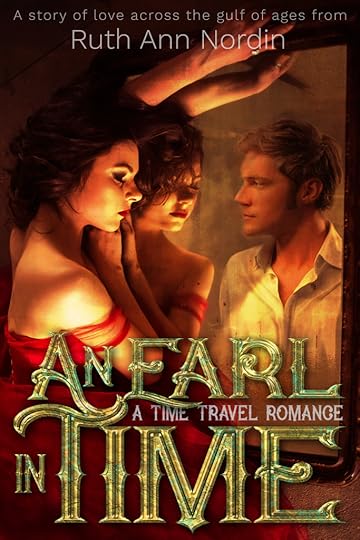
This is a standalone time travel romance that goes from our contemporary time period to the Regency past. It is pretty much a fairy tale. Don’t expect realism in this one. I went with the route of magic and a curse, which is similar to what other fairy tales have.
A Perilous Marriage

This is Book 1 in a brand new Regency series that are similar to the Regencies I typically write. This is in the Marriage by Necessity Series.
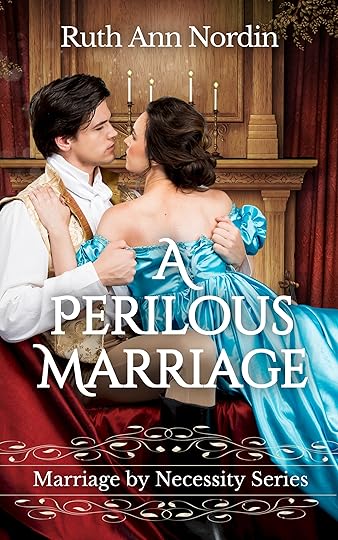
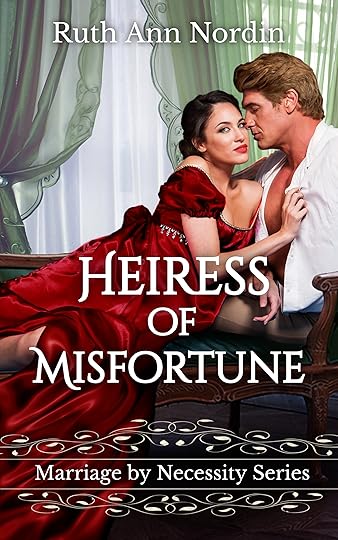
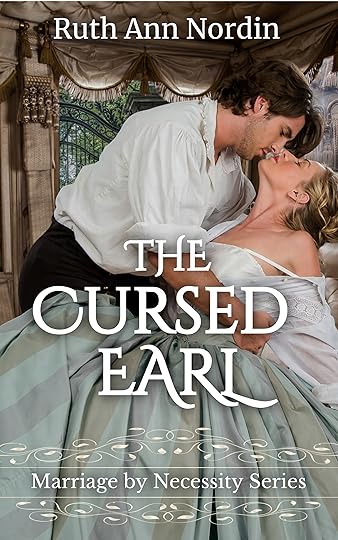 Might have Book 4
Might have Book 4
Interview for a Wife

This is a historical western romance that should complete the Nebraska Prairie Series. It’s similar to Book 1 in the series, which is The Purchased Bride. It has a tender feel to it.
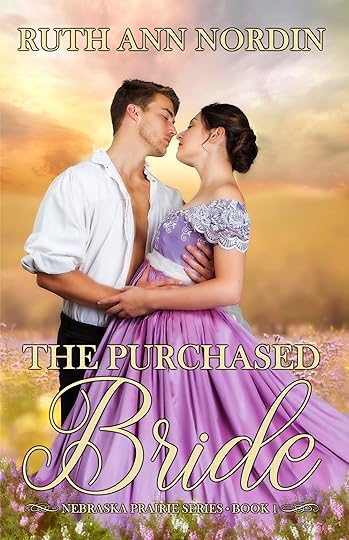

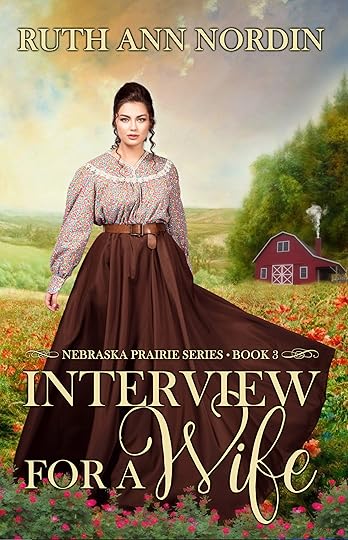
Suitable For Marriage
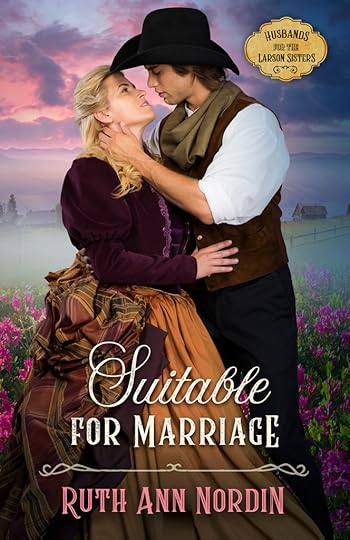
This is Book 3 in the Husbands for the Larson Sisters Series. I have no idea if it’ll be a comedy or not. This is a book where Tom and Jessica’s third daughter, Erin, is going to try to match the hero up with another woman so he’ll finally leave her alone.
Making a Realistic Publishing Schedule

This one is for writers who struggle with coming up with a publishing schedule that best fits their lives.
***
This is a “maybe” book for 2021:
Heiress of Misfortune
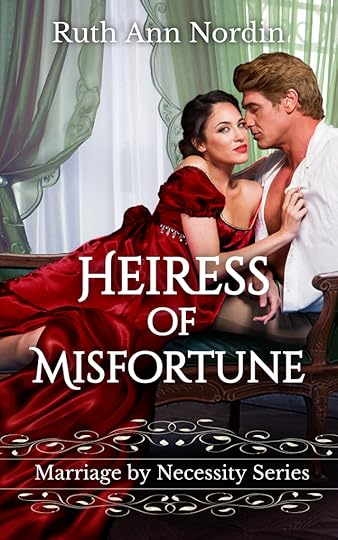
This will be Book 2 in the Marriage by Necessity Series. It has the potential to be a comedy, but without writing it, it’s impossible to tell. If this doesn’t make it out in 2021, the plan is to get it out early 2022.
December 28, 2020
Deleting Facebook and Moving to MeWe
For reasons I don’t want to get into on this blog, I’m deleting my Facebook account. Fortunately, I was able to find a viable writing group on MeWe and can spend my efforts over there.
MeWe will be where I do my social media thing now for my book stuff. Here’s my timeline. https://mewe.com/i/ruthnordin
If you ask to friend me, I will only accept the friend request if I recognize you. Too many single/divorced/widowed men are over there, and I seriously doubt they really want to read romance novels. Also, if you don’t have a profile pic and some posts so I know you’re legit, it’s impossible for me to know if I can trust you. I need at least a message or comment in this blog post to know you’re safe to friend. Too many bad players are out there.
If you’re following this blog, you will still receive updates on when I have new books out, so you don’t have to join MeWe to know with what I’m doing. I’m also keeping my monthly newsletter blog.
MeWe is pretty much for anyone who isn’t a huge fan of reading blog posts but still wants to keep in contact with me.
December 24, 2020
Trivia for The Virginia Series
I figured I’d lump these all together.
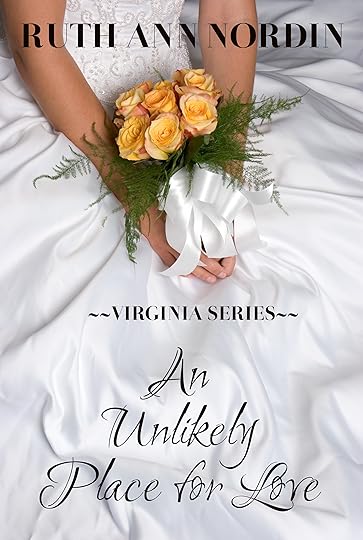
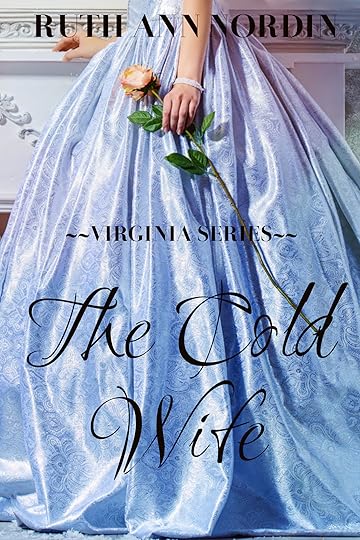
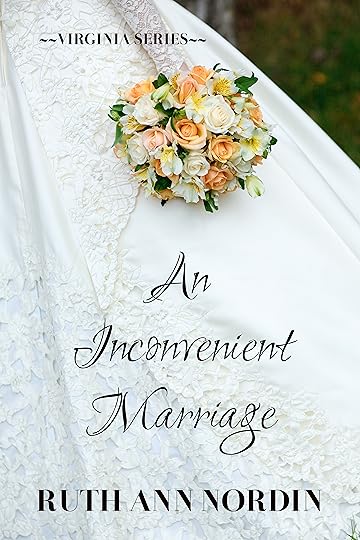
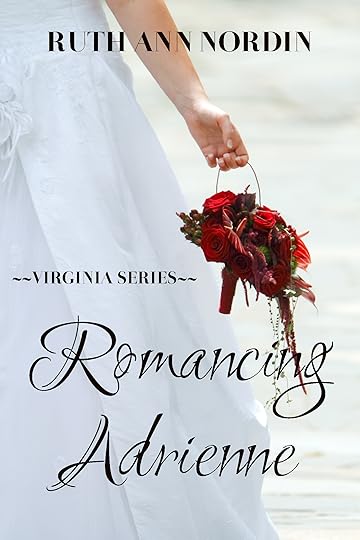
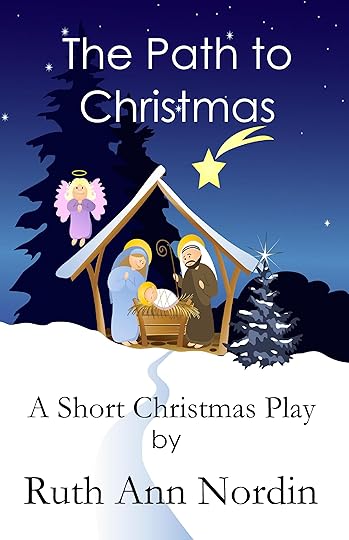
The first book I wrote in this series was An Inconvenient Marriage. During the writing of that book, I came up with the short Christmas play titled, “The Path to Christmas”. I didn’t originally write the entire play out, but someone asked me if I had the whole play available to read in an ebook. Since there was interest in this project, I went ahead and wrote the complete play. I have had the honor of one of my readers presenting this to her church, and the church wanted to put this on for their children’s Christmas show. I was thrilled to give my reader the go-ahead to do this. That’s one of the best things that has ever happened to me as a Christian.
One more thing about “The Path to Christmas”… The final lines about Jesus Christ dying on the cross at Calvary at the age of 33 was inspired by a poem I heard on the Thru the Bible Radio program with J. Vernon McGee. I can’t remember the name of the poem McGee read on the air, but it compared Alexander the Great to Jesus Christ.
As I mentioned above, An Inconvenient Marriage was the first book in this series I wrote. The idea for it was inspired while I was writing Falling In Love With Her Husband. In Falling In Love With Her Husband, the hero was in love with the heroine, but she didn’t love him. She did, however, know he was going to be good to her, so she proposed the idea of marriage. During the course of the marriage, the hero waited to consummate the marriage until she came around to loving him. While writing this book, I thought, “What if I wrote a book where the hero and heroine couldn’t stand each other but had to marry for a short time? What if both of them never wanted to consummate the marriage?” That is how An Inconvenient Marriage was born.
An Inconvenient Marriage was meant to be a standalone romance, but I liked Justin Monroe a lot. He was Jake Mitchell’s best friend. I wanted to write Justin’s story. But before I could do that, I wanted to write the other book that had to come before it. I decided to write about Chad and Kate Walker. At the time, I was reading a few books where a woman had disguised herself as a man, and I thought this was a fun plot. So that is how An Unlikely Place for Love was born, and it’s why Kate disguised as a man to be Chad’s farmhand.
I picked North Dakota for An Unlikely Place for Love because I spent a couple of years in that state and had good memories of my time there. It was my way of going back there. (A quite note: I also picked Falling In Love With Her Husband, Meant To Be, A Chance In Time, and the entire Native American Romance Series in North Dakota for the same reason.)
The reason I made it a point to have Kate return to Virginia was because I had developed a crush (weird, I know) on Jake Mitchell while writing An Inconvenient Marriage, and I wanted to “see” him again. That was the ONLY reason she went to the bank. I did, however, make the trip fit into the plot so it wouldn’t be a waste of space.
The other characters thinking Chad loved his first wife in An Unlikely Place for Love was loosely based off of a book I read in the 8th grade called Rebecca. Rebecca is a gothic tale written by Daphne du Maurier. It was written back in 1938. The heroine of this book is never given a first name. The book is in first person point of view, so everything we are exposed to is from her perspective, and she was jealous of her husband’s first wife, Rebecca, because she assumed he loved Rebecca more than he loved her. (Spoiler alert: he hated Rebecca, and this was a huge relief to the heroine of this story since she was assured of his love for her.) So anyway, in honor of that book, I decided to have Chad secretly hate his first wife.
Early on when I was writing, I was making a serious effort to write Christian romances, and the ones I had read had a lot of references to God and a few quotes from Scripture. I found it difficult to write this way because it felt like I forcing God into the storylines. (The books where I wrote from this angle were An Unlikely Place for Love, Falling In Love With Her Husband, and An Inconvenient Marriage.) I was never comfortable writing this way because I felt like I had to keep hitting people over the head with a Christian message rather than letting the story just play out as it wanted to. After attending a Christian writing conference, I came across someone who gave a workshop where he explained that planting seeds is just as important as bringing in the harvest. In other words, a writer didn’t have to preach God to the reader. They could just write the book from a Christian worldview. That changed everything about about the way I approached writing, and I was finally comfortable in my writing skin. Sometimes it takes a writer time to figure out where they fit in with a world full of other writers. 
December 18, 2020
Fun Equals Good Work (A Post For Writers)
I came across a quote Stephannie Beman included in her 2021 Writing Planner. It’s a quote by David Ogilvy. That quote has a slight variation on the internet when I looked it up, but in a nutshell, the quote says, “When people aren’t having any fun, they seldom produce good work.”
Now let’s flip that to the positive. “When people ARE having fun, they MOSTLY produce good work.”
In the last post, I was talking about making money writing books. Back in 2008-2010, the focus was mostly on writing for enjoyment and publishing books for the personal satisfaction of seeing one’s name on the cover. Then word got out that there was money in indie publishing, and now money seems to be the main reason most writers are publishing books. As I said, there’s nothing wrong with wanting to get paid for your writing. But, in my opinion, when the focus is on money, authors are ultimately going to sacrifice writing a story that is going to stand the test of time in its value to the writer and to the reader.
The appeal of subscription services like Kindle Unlimited, Kobo Plus, and Scribd is that you can read as many books as you want for a monthly fee. Every book offered in a subscription package feels free. There is no risk involved. If you don’t like the book, you just stop reading it and return it for another. Or you can finish what you read, return it, and pick up another one. It doesn’t matter how many books you read or even whether the books are any good or not. The only thing that matters is that the books are all “free”. I can see why this is enticing to readers, and I think subscription services for books are only going to grow in popularity in the years to come. I think this is going to lead to writers making less money because retailers who cater to voracious readers will lose money if they keep paying authors the 35-70% royalty rate authors get when they sell an ebook. For the retailer to make a profit, they will need to either limit how many books a reader can read in a month or they will need to pay the authors less. Most of the time, they err on the side of paying the authors less because a happy customer is a paying one.
Now, there is good news in all of this. People reading books will still want books that take them on an emotionally satisfying experience. They want to get lost in the story. They want to be right there with the characters, sharing their ups and downs as the story progresses. These are books that will still have purchasing power because the readers will want to keep them. They aren’t going to want to return them. I might watch a movie on Amazon Prime, but if I love it, I buy it because I want to be able to download it and watch it again. Books are the same way. If someone falls in love with a book, they’ll want to read it more than once.
Books that are “meh” are a dime a dozen. They’re replaceable. One is pretty much as good as another. I can’t tell you how many times someone’s told me something like, “I can’t remember what the title of that book was or who wrote it, but it had a woman who became a mail-order bride and married a widower with kids. It took place somewhere in a cold part of the country out west.” Well, that could be any number of romances out there. That is a very popular trope. You can’t narrow something like that down without more information. Some people have told me they know they read a certain book, but they don’t remember what happened in it. I’ve read books like that, too, and I have no desire to own such books. If a reader loves a book, they’ll buy it. They won’t just read it in a subscription plan and tossed it back into the virtual bin of books. My gut tells me that the best books being written are those written for fun, and I believe, in the long term, this is the method that will pay off. I don’t think it will pay off as in you’ll be making a ton of money, but I think it’ll pay off in that it will be on a reader’s “keeper shelf”. These are the books readers will be recommending to other people years from now.
An emotionally satisfying book can come in any genre, so don’t think that you have to write in something like literary fiction to stand the test of time. For example, when you’re looking at romance, you want to give the reader the uplifting experience of falling in love. When you’re looking at horror, you’re aiming for the reader to be so freaked out that they keep looking over their shoulder to make sure something spooky isn’t in the room with them. (If they have trouble sleeping, it’s a bonus.) When you’re writing science fiction, you want the reader to have a sense of wonder about the possibilities that exist on this world or beyond it. Every genre has a purpose, and the goal of the writer is to dive deep into that purpose so you can give the reader a satisfying emotional experience. The only way I think a writer can successfully write this kind of story is by diving so deep into the story they’re writing that they feel everything the characters do. If the character is scared, your heart needs to be beating faster. If the character is amused, you need to be laughing. If the character is angry, your adrenaline needs to be pumping. You, essentially, become the character you’re writing.
I don’t see how a writer who is rushing a story just to get it published can devote the kind of emotional work that the story needs to do it justice. Books that are rushed and thrown into the world are more like products on an assembly line. They lack heart. That’s what passion brings to the table. That’s why books written for fun matter. Anyone can sit down and write out a bunch of stuff that happens to a character, and they can tell us what a character is thinking and feeling. But if they aren’t emotionally invested in the journey the character is on, it’s going to show up in the final product. I’ve read a lot of these books. They’re just “meh” kind of stories. They pass the time, but they aren’t memorable. And to be honest, I skim them.
Before anyone thinks I’m being hard on other writers, I used to write “meh” books. Under a pen name, I recently republished one of those old books, and one of my readers told me there was no “connection” between the characters. The story was just okay. See? My lack of passion showed up in my work. In the past, I spent a lot time writing genres outside of romance because my family thought that romance was “trash”. As long as I was writing other genres, they were fully supportive of my writing efforts. Finally, I broke down and stopped writing for them. (And yes, they stopped reading my books because of it.) But in the end, that didn’t matter because once I started writing for me, I was having a lot of fun. And as a result, everything else fell into place. I had no trouble connecting with the characters on an emotional level because I loved what I was writing. This is why passion is important. It’s why writing for fun produces good work.
So if you want to write books that will have long-term meaning to yourself and to your readers, I highly recommend writing stories that are fun for you to write. If you’re having fun, you will end up producing good work. The reason it’ll be good work is because you’re going to give it everything you’ve got.
December 17, 2020
A Strategy for Making Money as An Author
Today’s post is inspired by a new author who was on Facebook and wanted to know how to be successful.
Successful in this case means “make a lot of money”. Very few authors actually ever come right out and say this, but that’s what “success” and “successful” mean. So that’s the approach I’m going to take in this post.
First of all, I see nothing wrong with a writer who wants to make money. What other profession out there will demand someone do the work for free? A book is a product the customer can consume. The author is providing something someone else can either learn from or enjoy. And authors have bills to pay just like everyone else. So there’s no reason to shame any writer for wanting to make money. Also, there’s no reason to shame any writer for wanting to simply have fun writing and publishing without giving any thought to money. I get tired of these endless debates over whether writers can be called a “serious” writer if they make money or not. A writer who is serious about writing is a “serious” writer.
Alright, that mini-rant aside, let’s get to my advice to new authors whose goal is to make money. I really only have two main points.
1. Write what will sell.
This means you have to think of the market when you create your book. Yeah, I know that sucks for some of us who are driven by passion. This is why my mission isn’t to focus on writing for the sake of making money. I used to do that, and I made way more than I do today, but I wasn’t happy writing for that reason. So I shifted to writing for fun. My income has taken a drop because of it. I still make some money, but it’s nothing like what I used to make. The kind of books you write will impact your potential for maximizing your income. In addition to writing books that are popular in your genre, you will need to get an awesome cover and an awesome book description. Also, the book will have to be good. It has to be interesting enough for readers to keep reading. So you need to hit multiple levels in this approach.
There are a lot of You Tube videos, articles, and books on how to write to market (some will call this writing to trend). You can also browse bestselling books in your genre. What things do those books have in common? Remember, NEVER copy anyone. Plagiarism is wrong. But there are some general tropes and story themes that are used so much that they’re fair game. Plenty of people have already done the work narrowing down how to write to market, and this information is free if you take the time to search for it. You don’t need to spend a ton of money on courses to learn how to do this.
Now, I will add that while looking into writing what is popular in your genre, you can look for ways to mix in stuff you enjoy. This is a way to merge writing to market and writing for passion. Some authors do this very well. It’s the angle I went for, and it did yield good money. It also helped to sustain me for the long term, though eventually I ran out of ideas I was interested in and had to switch completely to writing for passion. Your mileage will vary. You might be able to do the market/passion blend indefinitely. No two authors are alike.
2. Publish fast.
Unless you have income coming in from other sources, you will need to get books out frequently, especially if you’re in a genre where readers read fast. The faster they read, the quicker you should be. I’m in romance, and those readers tell me they can read 2-3 books a day. So if I were to publish a book a week, that would work just fine with them. However, there is no way I can write that fast. I’ve tried different ways of increasing my word count, I settle on 6 (maybe 7) romances a year that average 60,000 words each. That’s only a new book out every other month. That is SLOW in romance. There is an author who writes 120,000 words a month, and she finishes three or more books in three weeks. I think she has full length novels and novellas. She makes a lot of money. I don’t. We’re both in romance. Speed is a factor in making money. You’ll have to research your genre to figure out the right amount of books you need to produce in order to maximize your income potential.
If you are unable to write at a speed that all will allow you release books at a consistent and fast pace, then I recommend hiring ghostwriters. I don’t hire ghostwriters because for me, the goal is to have fun creating the story and working with the characters. That is the payoff for me. The money is just icing on the cake. But if money is something you are most concerned about, I see nothing wrong with having help. Ghostwriters could use the money, and they’re willing to do the job. As long as readers enjoy the books, that’s all that matters. I know this is a sensitive topic in the writing community, but we’re talking about how to make the most money possible. This is a business decision. If you can’t write fast enough to make the kind of money you want, then this is a method to help you get more books out.
I have an author friend who uses ghostwriters. She comes up with the story idea and outlines it. Then she gives the job to the ghostwriter who writes it out for her. Afterwards, she goes through it to make sure it’s something she’s happy with, and then she publishes it. She does this while writing some books, too. She can’t keep up with the pace in her genre. Her words of caution, for anyone thinking of going into this, is to make sure you get a sample from the ghostwriter first. Give the ghostwriter a prompt and have them write a couple of paragraphs to give you an idea of their writing skills. Then you also want a ghostwriter who can work on a deadline and turns in work that doesn’t have a ton of errors in it. She also has more than one ghostwriter so that she always has a new book coming in to polish up and publish. She doesn’t have an assistant to help with this, but if you make enough money doing this strategy, I think an assistant to help with this would help you be even more efficient.
While I’m thinking of assistants, a lot of authors have them. Even ones who write all of their own books hire them. Assistants do a variety of jobs. They can upload the book, maintain the blog/website, post to social media, sort through emails to eliminate junk, and any other task. Assistants can help you in your quest to publish books faster. So that would be something else you can look into if it interests you. When looking at assistants, I would recommend getting personal recommendations from other authors they’ve worked with, if possible. I’ve never had an assistant, but it should be someone you can trust and be comfortable around.
***
That’s it for my strategy for the authors out there. There are other things like advertising and such to help with the money side of things, but I don’t feel like going into the weeds on that. Without a good backlist, the ads and other forms of promotion won’t get you very far. If you do have a good backlist, then I would combine this information with other marketing strategies. There are plenty of books out there on this, and I personally hate marketing so I have no desire to write a post on it.
Elana M Johnson has written a Indie Inspiration for Self-Publishers series on rapid releasing, writing cover copy, and marketing. I have all three books, and while I’m personally not interest in doing over half the stuff she mentions, I did like the information she provided. These are books meant for writers who are looking to make money. This series is available across multiple retailers. I’m not going to take the time to put down all the links. Just go to your preferred retailer and search for her. She’s easy to find.
December 9, 2020
Perfectly Matched and An Earl In Time
 Book 2 in the Husbands for the Larson Sisters Series
Book 2 in the Husbands for the Larson Sisters SeriesI’m 34,000 words into Perfectly Matched right now, and this book is NOTHING like I had planned. It’s a good thing I didn’t spend time writing the book description because I’d have to go back and change the entire thing.
So my original ideas was to have this be a romantic comedy where Jim marries Patricia Larson (that’s Tom Larson’s 2nd daughter) and takes her to downtown Omaha where he lives in what he believes to be a haunted house. The house, of course, wasn’t haunted, but he was supposed to think it was, and this was going to be the avenue where there was a lot of humor.
Remember in Nelly’s romance (pictured below) how her sisters were all excited to have her get married because then it meant they could start getting husbands?
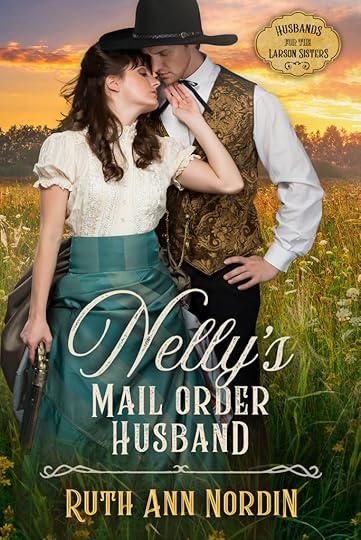 Book 1 in the series
Book 1 in the seriesWell, Val’s friend (Jim) got off the train, and Nelly and Val brought Jim out to Tom Larson’s farm to stay until he got a job and place to live in town. All at once, two of the three remaining unmarried sisters started to compete for his attention, leaving poor Jim overwhelmed and unsure of what to do.
This angle was turning out to be so much fun that I decided to keep going with it. I’m over halfway into the book, and we’re still at the point where Patricia and Erin don’t know which of them he’ll pick. Daisy (the youngest at 16) is convinced he’s fallen in love with her despite her attempts to stay out of the way. Now, Jim’s never told Daisy he’s interested in her. That’s something she came up with all on her own. And since it adds to the humor of the story, I decided to roll with it.
These girls are a hoot to work with. I had a lot of fun writing the scenes with Tom and Joel, and these girls are just as fun.
Now, the way this book has progressed, I had to throw out my original idea. Instead, the book is going to end at a wedding. This is one of the few books I’ve done where I don’t feel a sex scene would add anything to the story. I could throw it in, but there’s really no purpose except to let new readers know that I don’t primarily write “clean” romances. Most of the time, I feel a scene does add something, usually to the development of the relationship between the hero and heroine. In this case, a sex just wouldn’t have added anything to the story, so I wanted to leave it out.
I wasn’t sure if this would be disappointing to people who do read my books, so I posed the question on Facebook. I do want to make people who take the time to read my book as happy as I can. I realize I can’t please everyone, but I do try. Thankfully, people said they’re fine if ends at the wedding scene. This puts a lot of pressure off from trying to wiggle in some way to make a sex scene fit into the story.
I would like to have this book out in March, but I can’t promise that since I went through 2.5 months where I was unable to write more than a few hundred words on any one day. It’s only been since the past two weeks that I finally got the “spark” back. I think I can still make it for a March release as long as the momentum keeps going.
***

One of the things that gave me the “spark” back was giving myself permission to write something different from what I typically do. An Earl In Time is going to be different. It helps me to dive into other genres.
While I was in my writing funk, I was browsing pre-made covers on The Book Cover Designer. I found that one above. It was love at first sight. But I couldn’t see buying it unless I could write a story for it. I spent a week or two thinking over what kind of story I could write to fit that cover. Obviously, the cover isn’t your typical historical romance. The mirror is separating the hero and heroine. It appears as if he’s stuck in it. So that gave me the question, “Why is he stuck there? What happened to cause him to be there. How is she going to cross the divide and be with him?”
I had other things I wanted for the story to hit in order for it to be something I could get excited about writing. I wanted something along the lines of the Grimm stories, not the light Disney adaptations. I wanted something that would allow me to break outside the box of realism. I wanted the possibility to work with magic and curses, and I wanted something dark. I wanted to be able to take the limitations off of historical romance. I wanted my imagination to be able to go in any direction it wanted to.
After working with several ideas, I settled on a time travel romance that starts in our current day. The heroine has inherited an English estate, so she leaves the United States to go there in order to sell it. Yeah, she could have stayed in the US, but for the sake of the story, she goes to England. Once she crosses the moat (I decided on adding a moat after finding out that a property over in that area actually has one), she’s going to be unable to leave. The moat contains the magic that keeps her there. Other people can come and leave, but she’ll be unable to. I want there to be some creepiness feel to the story, so I’ll have her be alone. Things always feel creepier when people are alone.
Here’s what I know so far:
The curse started in the early 1800s when the earl lived there, and there’s a mirror on the second floor that is a portal between our current day and the past. He can’t go to the present, but the heroine will be able to go into the past. When the curse was set, the hero and the servants were transported into a state of suspended time. For two hundred years, he’s been having to live the same day over and over. The servants, however, aren’t aware of it. To them, no time has passed at all. That’s the setup on that side of things, and I have no idea what caused the curse or why the heroine is the key to breaking it. And for some reason, the curse only effects the hero and the heroine. No one else in the family line was touched by it because the person she inherited the estate from came and went without any problems. The only thing is that no one in the family had ever been able to sell the place for some reason, which I don’t know yet. This is a story where I find out the answers as I write the scenes.
Right now, I’m at the point where she’s about to notice something moving in the mirror that’ll totally freak her out. She hasn’t passed through the portal into his time yet. That comes later. At the moment, she thinks everything is normal. She doesn’t even realize she’s unable to leave the property. That’s coming soon, and I’m excited. I enjoy writing the high tension stuff. I feel like it flexes my writing muscles.
Bottom line, if you don’t like dark/spooky fiction, you’ll want to avoid this book. The goal is to do a fairy tale with gothic elements.
December 3, 2020
Tips on Writing When You’re Facing Burn Out (A Post for Writers)
Writing is one of those things that demand a lot of energy. I’m talking about creative energy. Words just don’t pop onto the page. They need to be created in the mind first, and these words need to be strung together in a way that tells a compelling story that will keep the author, and hopefully reader, engaged all the way from the beginning to the end.
The longer the story, the more writing the story is going to feel like a marathon. I know we’re not out running or lifting heavy weights, but we are using our creative muscles. We still need to be disciplined in our goal of finishing a book. We need to stick to it even when the story isn’t as bright and shiny as it was when we started it. This involves a lot of pacing on our part. Long-term writing, especially, requires a good schedule that you can stick with.
Over time, however, even the most disciplined of writers who have a solid writing schedule that gives them a realistic publishing schedule can face the dreaded burn out. Today, I’m going to offer some tips on how to deal with this when it comes knocking at your door.
1. Take a break.
I’m not a fan of writing every single day. I think the creative mind needs a breather. We would never tell a doctor or a teacher they need to work every single day or they aren’t a “real” doctor or teacher. So why are we doing this to writers? Writer is a person who writes. It doesn’t matter how little or how much the writer writes. As long as they are writing, they are a writer.
And it’s healthy for people to rest. Not everyone will need the same amount of time to rest. We all have different things happening in our lives. Someone who is taking care of an elderly parent or young kids will have more already on their plate to deal with. Also, people who work can’t use a “full 24-hour day” to fit in some writing. Or maybe you have health issues. Perhaps you’ve been steadily writing and publishing a book or more a month for a year. That kind of pacing will wear anyone out.
The more exhausted you are, the longer of a break you’ll need. Don’t let anyone tell you how much of a break you should take. You take all the time you need.
2. Set up a realistic pacing system for your life.
I know some authors brag about writing 5,000 words a day and publishing 2-3 books a month, but that’s not realistic for everyone. Some authors do one book a year, and there is nothing wrong with that. My advice is to tune out authors who make it sound like you’re a failure if you’re not rapidly writing and releasing books. You are not a failure. Your lifestyle is just set up in a way that doesn’t make 5,000 words a day the best option for you.
I think it’s a good idea to track down how you use your time for one month. Then at the end of the month, take a look at what you’re doing. Are there areas where you’re wasting time doing something that could be spend writing? Then fill in that slot to write instead. Until you know where your time is going, it’s hard to figure out when you can write. Not everyone has the ability to sit down all morning and write. Some people need to wiggle in 30 minutes here and there. There’s nothing wrong with that. As long as the free time is there and you want to spend it writing, go ahead and do it.
3. Eliminate as many stressors as possible.
This is probably the trickiest part since we can’t always control the stressors in our lives. My advice is to look for moments in the day where you can get away from everything else and just relax. Give your mind a break from all the noise.
I have music to help me with this. When I sit down to write, I have a playlist of music ready to go. Sometimes I put on headphones to tune out everything else around me. I don’t let myself get tangled up in social media or anything else during this time. All I do is write. I’ve also had to start going to bed without listening to anything negative. The negative stuff at the end of the day makes sleeping more difficult, and the harder it is to sleep, the harder it is to be well-rested and ready to go for the next day. So those quiet times, however you can find them, are extremely helpful to being in a restful state. The better rested you are, the happier you are, and the happier you are, the easier it is to create stories.
4. Exercise
Sometimes getting out and physically moving can help. The endorphins created during exercise offer a natural boost of happiness that can help offset the effects of stress, and burn out is a major source of stress.
5. Eat Well
There is definitely a connection between what you eat and how you feel. We all know what foods are healthy and which aren’t, so I won’t before anyone with a list.
6. Do things you enjoy.
Just because you have a day where you can write, it doesn’t mean you have to do that. You can give yourself permission to engage in other activities you enjoy. The story will always be there when you get back to it.
But just make sure you aren’t using those other things as an excuse to put off writing the story forever. The goal of starting a book should be to finish it.
7. Ignore the blog posts and social media threads on how to make more money as a writer when you’re feeling down.
In my experience, this is one of the biggest sources of stress. You can’t control how sales go for you. If you’re feeling exhausted or stressed out already, this is only going to pile on the negative emotions. My advice is to worry about marketing when you have a ton of creative energy already flowing through you, and writing is coming fast and easy. If you’re focusing on marketing where you’re struggling with enthusiasm, it’s only going to make things worse.
8. Write what you love.
When you’re writing what you love, it’s much easier to get words down on paper. Maybe this is something you have to do while writing on the stuff that makes you money. There’s nothing wrong with carving out some time for a “guilty pleasure” that only you will enjoy. It could be the very thing to help fill up that creative well within you.



